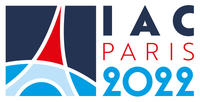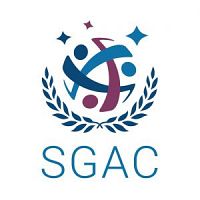›Returning to the Moon: Implications
Do we know what the implications of returning to the Moon would have on human physiology and psychology? Can medical technology aid us?
Time: 11:30-14:00 BST/12:30-15:00 CEDT/6.30am-9am EDT
About this Event
The last time humankind flew beyond lower Earth orbit and to the Moon was during the Apollo 17 mission, in 1972. Since then, as a species we have not returned to the Moon, despite multi-national interests in setting up lunar bases. NASA’s Artemis programme aims to put “the first woman and the next man” on the Moon by as early as 2024, with the aim of establishing a presence on the Moon, and using it as a way of eventually putting humans on Mars. Yet, the implications of an extended stay on the Moon on human health are yet to be explored in great detail. How would flying and setting up for months or even years at a time effect human physiology and psychology? What risks does this next step in human space exploration pose to our bodies, and are the risks worth it?
This UK Space LABS/SGAC webinar event aims to explore these questions and also provide the opportunity for your questions to be answered by a variety of experts in the field, who each have experience in space related research, and will offer fascinating talks on a range of topics, from remote monitoring of astronaut health, to the psychology of coping in extreme environments.
- Dr Jo Bower - Jo is a Lecturer in psychology at University of East Anglia. She completed her postdoctoral fellowship at the University of Houston, on a NASA funded project investigating risk and resilience of people in isolated and extreme environments. She will be presenting data on emotional and physical symptoms of being in isolated and extreme environments, including a recent Antarctic winterover study, which was used as an analogue for long duration space exploration.
- Dr Floris Wuyst - Floris is Professor at the University of Antwerp and recently worked with Russian cosmonauts to publish a paper on the effects of spaceflight on functional brain connectivity.
- Lauren Church - Lauren is an MSc student studying Space Physiology and Health at King's College London. As part of the research collective "Paraboladies", Lauren has completed research on the pre-flight medical checks required for commercial suborbital spaceflight, with an accepted abstract for AsMA 2020 on this subject. She will share her insights in how remote monitoring of astronaut health can facilitate a return to the Moon, as well as long term habituation of the Moon.
- Professor Simon Evetts: Simon is the Managing Director of SeaSpace Research Ltd, the R&D arm of Blue Abyss, and the R&D Director of Blue Abyss. Simon is a Visiting Senior Lecturer at King’s College London, a Visiting Professor at Northumbria University, and co-founder of the UK Space Life & Biomedical Sciences Association. Simon will talk about Prof Walter Kuehnegger, one of the Apollo Program's Principal Investigators and how his research enable humanity to explore the Moon.
- Bjorn Baselt: Bjorn from SCK CEN in Belgium is our last speaker, and he will be talking about 'Models for space studies in biology: from cells to animals to humans".
UK Space LABS: The UK Space Life and Biomedical Sciences Association is an organisation which aims to communication, cooperation and collaboration between UK based organisations and individuals involved or interested in research, healthcare, outreach and educational activities related to space life and biomedical sciences and the human element of human spaceflight. The organisation aims to advance the research and conduct of space life and biomedical sciences in the UK, benefit terrestrial healthcare, and prepare the UK to effectively participate in future human spaceflight activities.
SGAC: Space Generation Advisory Council is an non-profit NGO organisation and network which aims to represent university students and young space professionals ages 18-35 to the United Nations, space agencies, industry, and academia. SGAC holds Permanent Observer status at the United Nations Committee on the Peaceful Uses of Outer Space (UN COPUOS) and regularly takes part in the annual meeting, as well as its Legal and Scientific and Technical Subcommittees. SGAC holds consultative status at the United Nations Economic and Social Council (UN ECOSOC), contributing to discussions on the role of space in achieving the UN Sustainable Development Goals.
Tweets by spaceagendaTrack this event on your Apple calendar














 Online
Online